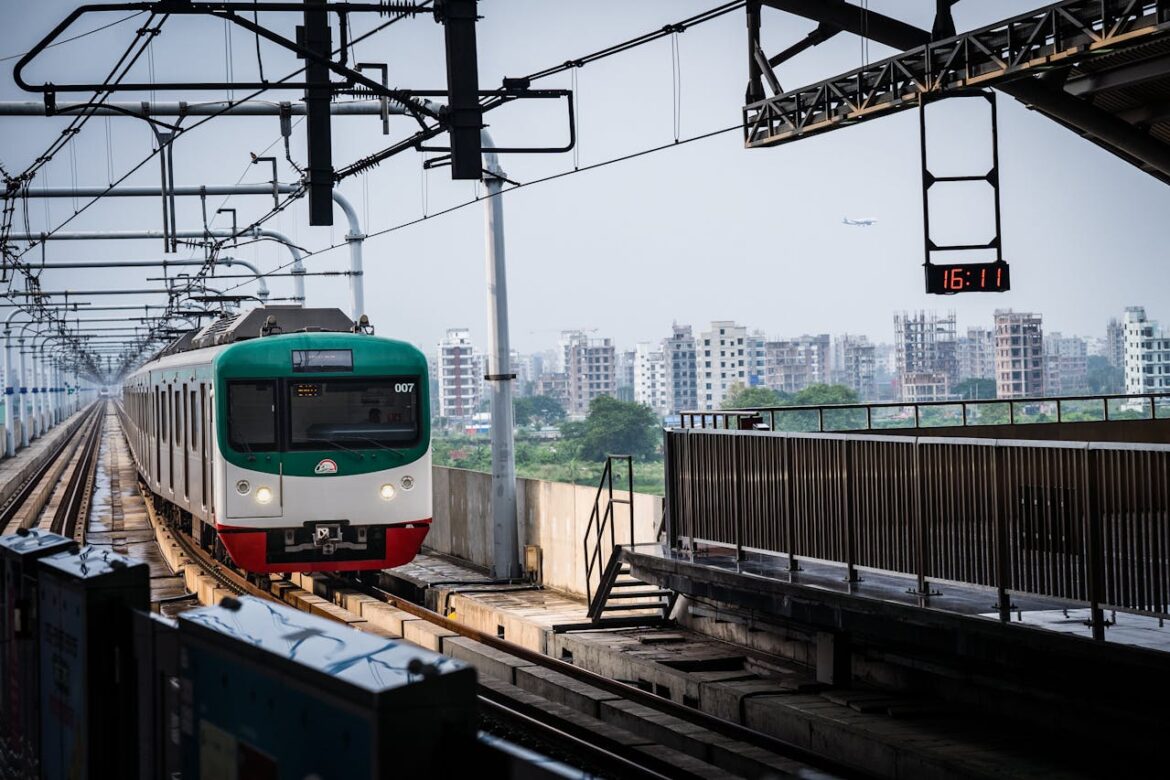A recent cost analysis has shown that the expenses for building two proposed metro rail lines in Dhaka might surpass two trillion taka, which is more than twice what the government initially predicted. triggering serious concern among officials and experts. Based on contractor bids so far, the per‑kilometre cost is already exceeding Tk 3 billion for the new routes, far higher than the Tk 1.6 billion per kilometre spent on the current Uttara–Kamalapur line built at around Tk 330 billion. The two future lines, known as MRT Line‑1 and MRT Line‑5, are expected to extend over approximately 31 kilometres and 20 kilometres respectively, blending elevated and underground sections. Lighthouse estimates now show that Line‑1’s cost alone may hit Tk 600 billion in construction, and with expenses for land acquisition, salaries, taxes, consultant fees, inflation and potential design changes included, total project expenditure could approach Tk 942 billion, pushing the combined cost over Tk 2 trillion. Key factors driving this surge include restrictive loan terms from the main financier, which currently limit participation to mainly Japanese contractors, reducing competition and inflating prices. Transport experts point out that JICA‑funded metro projects in other countries usually cost much less, often half the rate, and even in Indian cities where JICA is involved, local firms bid competitively and deliver more affordable outcomes. Inside sources assert that nearly all project packages have seen dominantly Japanese bids with little room for negotiation. One underground segment tender for Line‑5, covering about 5.5 kilometres, was awarded at a bid equivalent to over Tk 28 billion per kilometre compared to a 2019 estimate of about Tk 4 billion total. Analysts warn that such uneven tender structures and loan conditions that favour one nationality push Bangladesh toward unsustainable borrowing. A transport professor described the project as at risk of becoming a “white elephant” unless cost controls and competitive bidding practices are adopted. Officials at the transit agency have acknowledged the need for revisiting financial models to open up contractor selection and lower unit costs, and discussions are underway with government leaders and the lending agency to seek more balanced terms. Stakeholders say Bangladesh must encourage broader international competition in bidding to drive down prices and prevent the burden of oversized costs on future users. If left unaddressed, the soaring construction price could hamper urban transit plans, limit fare affordability, and strain public finances for years to come. A more transparent and competitive procurement strategy is seen as essential for ensuring these metro lines deliver value, serve commuters effectively, and support the growing transport needs of the city without crippling public resources.
Rising Costs of Dhaka Metro Rail Could Top Tk 2 Trillion, Raising Alarms
58


